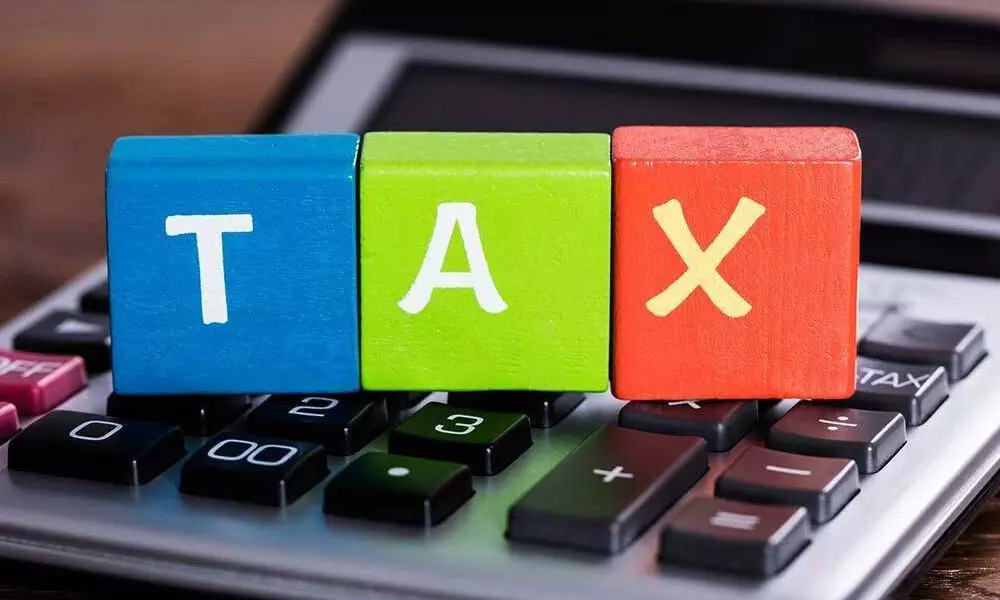2021: The year that pivoted tax administration in India
A record GST tax collection, an overhaul of the income tax return filing portal and the landmark move to scrap retrospective taxation have set the stage for the next level of reforms in tax administration that include bringing a framework for cryptocurrencies and rationalising the GST rate structure
image for illustrative purpose

A record GST tax collection, an overhaul of the income tax return filing portal and the landmark move to scrap retrospective taxation have set the stage for the next level of reforms in tax administration that include bringing a framework for cryptocurrencies and rationalising the GST rate structure. With tax reforms such as faceless assessment taking roots, 2021 will go down as the year that pivoted the tax administration in a country aspiring to become the world's favourite investment destination.
The task ahead is going to be a tough one as the tax department would grapple with taxing cryptocurrencies, rationalising Goods and Services Tax (GST) rates to shore up revenues and post June 2022, the scenario of how the GST revenue plays out for states without the Centre's support of compensation. In a historic decision, the government in August scrapped the retrospective amendment on indirect transfers for transactions prior to May 28, 2012. To bring tax certainty, the new rule provides that no retrospective tax demand shall be raised in the future, and demand raised already shall be nullified on fulfilment of certain conditions.
The amount already paid/collected shall be refunded, without any interest on fulfilment of the said conditions. Almost all of the 17 companies, including Cairn and Vodafone, which were entangled in a dispute with the government over the retro tax law have approached the revenue department to withdraw and settle the cases.
In its endeavour to simplify processes for taxpayers, the revenue department unveiled a new income tax e-filing portal in June. However, the portal suffered technical snags and stakeholders complained about the non-availability of many functionalities. The revenue department had to extend the I-T return filing date for individual taxpayers till December 31 from July 31, and also relaxed many other compliance deadlines. Over a period of time, these glitches have come down to some extent and as of December 15, 2021, 3.59 crore Income Tax Returns (ITRs) have been filed through the new e-filing portal. On the indirect taxes front, GST collection recorded stellar performance this year with five straight months of over Rs 1 lakh crore mop-up till November. In April, the mop-up was the highest since the rollout of the new tax regime in July 2017 at Rs 1,39,708 crore. As the five-year mechanism for compensating states for the shortfall in GST revenues comes to an end in June 2022, the Centre and the states have started deliberating on rationalising tax rates and merging tax slabs to remove some items from the exempt list and shore up revenues.
Currently, GST is a four-tier slab structure of 5, 12, 18 and 28 per cent. Essential items are either exempt or taxed at the lowest slab, while luxury and demerit items attract the highest rate. On the top of the highest slab, a cess is levied on luxury and demerit goods. The amount collected from levying this cess is used to compensate states for revenue loss on account of GST implementation. On the direct taxes front, all eyes are now on the proposed cryptocurrency law and the amendments that could be introduced in Budget 2022 clarifying taxation of such virtual currencies.
Besides, clarification on the applicability of GST on crypto trading too is awaited. In 2018, the Reserve Bank of India (RBI) had banned banks and other financial institutions from facilitating cryptocurrency transactions. However, that does not spare anyone from paying tax on cryptocurrency trades. Tax and consulting firm AKM Global's Director - Tax and Regulatory, Sandeep Sehgal said in India, there are no specific guidelines on the taxation of cryptocurrency in the Income-Tax Act, 1961. But taxpayers need to report transactions if they have invested in cryptocurrencies and gained from those investments.
BDO India, Partner and Leader - Tax and Regulatory, Pranay Bhatia said cryptocurrencies have taken fancy of the Indian investors and the government is likely to introduce a law on regulating the operation of cryptocurrencies in India. "However, independent of the said regulation, clarity around taxing cryptocurrency transactions is the need of the hour to avoid unwarranted tax litigations and put investor anxiety to rest," Bhatia added. (PTI)

